In the history of college football, several methods have determined the national champion: The Associated Press poll, the Bowl Championship Series, and the four-team College Football Playoff. This year, it’s at the hands of the expanded 12-team Playoff bracket.
But 55 years ago, the White House chose to interfere in a matter in which it had no authority. At the “Game of the Century,” when Arkansas and Texas faced off in 1969, President Richard Nixon decided to name the winner the national champion.
The Razorbacks and Longhorns—who will renew their clash on Saturday for the 80th time—entered the 1969 season as two of the nation’s top teams. Coming into the game in Fayetteville, Texas ranked No. 1 and Arkansas was No. 2; their dueling 9–0 records had them on a collision course for the national title.
To avoid a conflict with the World Series, ABC television executive Roone Arledge moved the highly anticipated game to Dec. 6. Adding to the appeal: The game would serve as a grand finale to the sport’s centennial season, and Nixon would attend if both coaches agreed to the date change.
“It is definitely one of the most significant games in the history of college football for multiple reasons,” says Denis Crawford, the College Football Hall of Fame’s historian. “It is one of the earliest examples of a made-for-TV sporting event even before people realized Texas and Arkansas would be the top-ranked teams in the nation.”
The 37th president was one of the biggest sports fans to ever sit in the Oval Office. Nixon played football at Whittier College in California and regularly watched college football on Saturdays. Despite the anti-Vietnam War sentiment in Northern Arkansas, Nixon agreed to attend the game. Additionally, he decided he’d informally name the winner the national champion despite the AP and United Press International polls determining the official champion after bowl season. Left out of his calculus was Penn State, which was in the midst of its second consecutive undefeated season.
“I think [Nixon] really gets caught up in the moment,” Crawford tells FOS. “I don’t know that it was actually an executive action to make sure the winner of this game was declared national champion, because it was likely going to happen anyway.”
A who’s who of political figures were in the stadium, including Secretary of State Henry Kissinger and future President George H.W. Bush, then a Texas congressman. At halftime, Nixon appeared on the ABC broadcast, predicting the Texas offense would awaken in the second half despite the Longhorns trailing Arkansas 7–0.
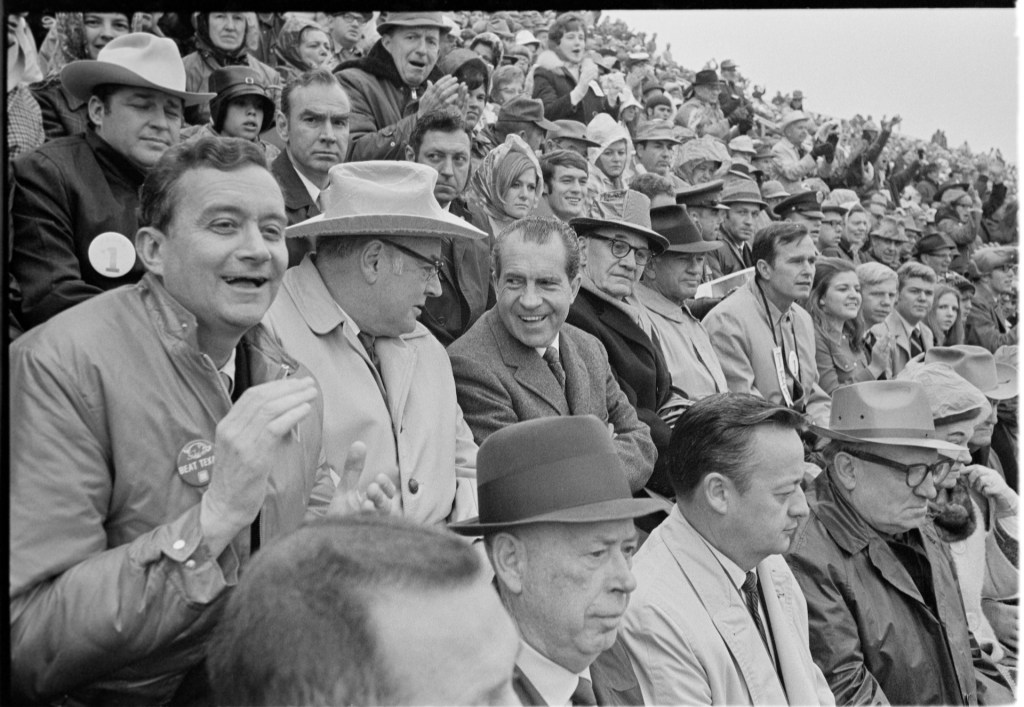
“[The Longhorns] are likely to be better offensively,” Nixon said. “But they need to throw it more and not rely so heavily on the run. They’re going to have to open up the Arkansas defense.”
While in the booth, Nixon also foreshadowed a problem he would face after the game, his omission of Penn State, who was also unbeaten at the time.
“I know they’re a great team,” Nixon told Chris Schenkel during the ABC broadcast. “Maybe we ought to have a super college bowl after this.”
It sounds like Nixon would have been a fan of the expanded Playoff.
Texas came back to beat Arkansas 15–14, scoring all of its points in the fourth quarter to cap a legendary rally that made Nixon’s comments seem prophetic. Trailing 14–8, the Longhorns converted a 4th-and-3 from their own 43-yard line with 4:47 left as quarterback James Street found tight end Randy Peschel on a deep pass that Peschel caught over his shoulder in double coverage.
The Longhorns scored two plays later and took the lead for good on the extra point.
It was an instant classic—but Nixon’s presence overshadowed the action on the field. While there were only three networks on TV in the late 1960s, the game’s 52.1 Nielsen rating (a 74% share of households) remains the highest TV rating in American football history for both college and NFL.
“We get so caught up in the Nixon aspect of it that we forget it was an amazing game,” Crawford says. “If you took Nixon out, people would have still hung on every second of that game just because of how well it was played.”
And so, the 1969 season had its champion—at least to Nixon. After the game, Nixon met with both teams in their locker rooms and presented his plaque to Texas coach Darrell Royal. Nixon took the plaque back to Washington to get Texas’s name engraved. A Texas spokesperson tells Front Office Sports the plaque was lost over the years, but it has since been recreated by longtime sports information director Bill Little and presented to athletic director Chris Del Conte. It now resides in the national championship room at the school’s Hall of Fame.
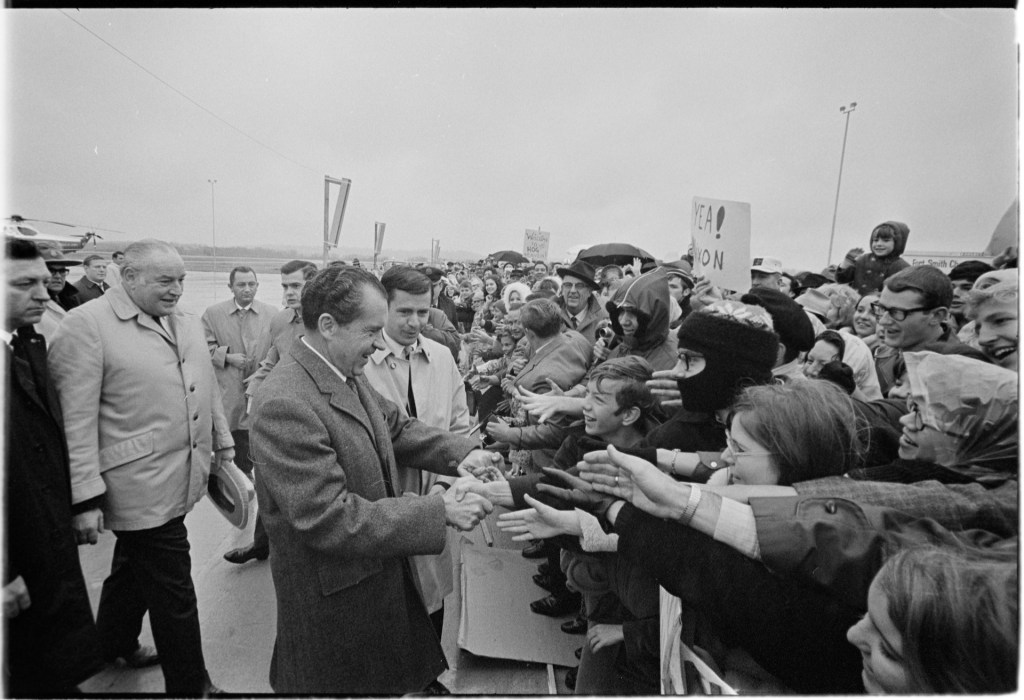
Not every team liked the White House’s involvement with the outcome of the college football season.
Penn State, specifically, felt slighted, a feeling that stuck with longtime conservative Joe Paterno for years. Four years after the legendary game, Paterno, while giving a commencement speech at the school, said, “I’ve wondered how President Nixon could know so little about Watergate in 1973 and so much about college football in 1969.”
But Paterno passed on a chance to change his team’s fate. Despite an undefeated season and No. 2 ranking, the Nittany Lions passed on the chance to play Texas in the Cotton Bowl in what would have pitted the nation’s two undefeated teams in a de-facto title game. Instead, they opted to face Missouri in the Orange Bowl, where they won 10–3. While no definitive reason has been given for the Nittany Lions passing on the Cotton Bowl, years later, players said safety concerns, race relations, and skepticism that the game’s impact would change their standing factored into the decision.
Nixon unsuccessfully tried to award a second-place plaque to Penn State after receiving a call from Pennsylvania governor and fellow Republican Raymond Shafer. After the “Game of the Century” ended, an angry Paterno got a call from one of Nixon’s aides inviting him and the team to the White House to accept a trophy for having the nation’s longest winningest streak.
“You tell the president to take that trophy,” Paterno replied, “and shove it.”
Luckily for Nixon, the final polls agreed with him—meaning the president’s actions didn’t leave a stain on the sport. The Longhorns finished the season atop both the AP and UPI polls, making them the consensus national champion.
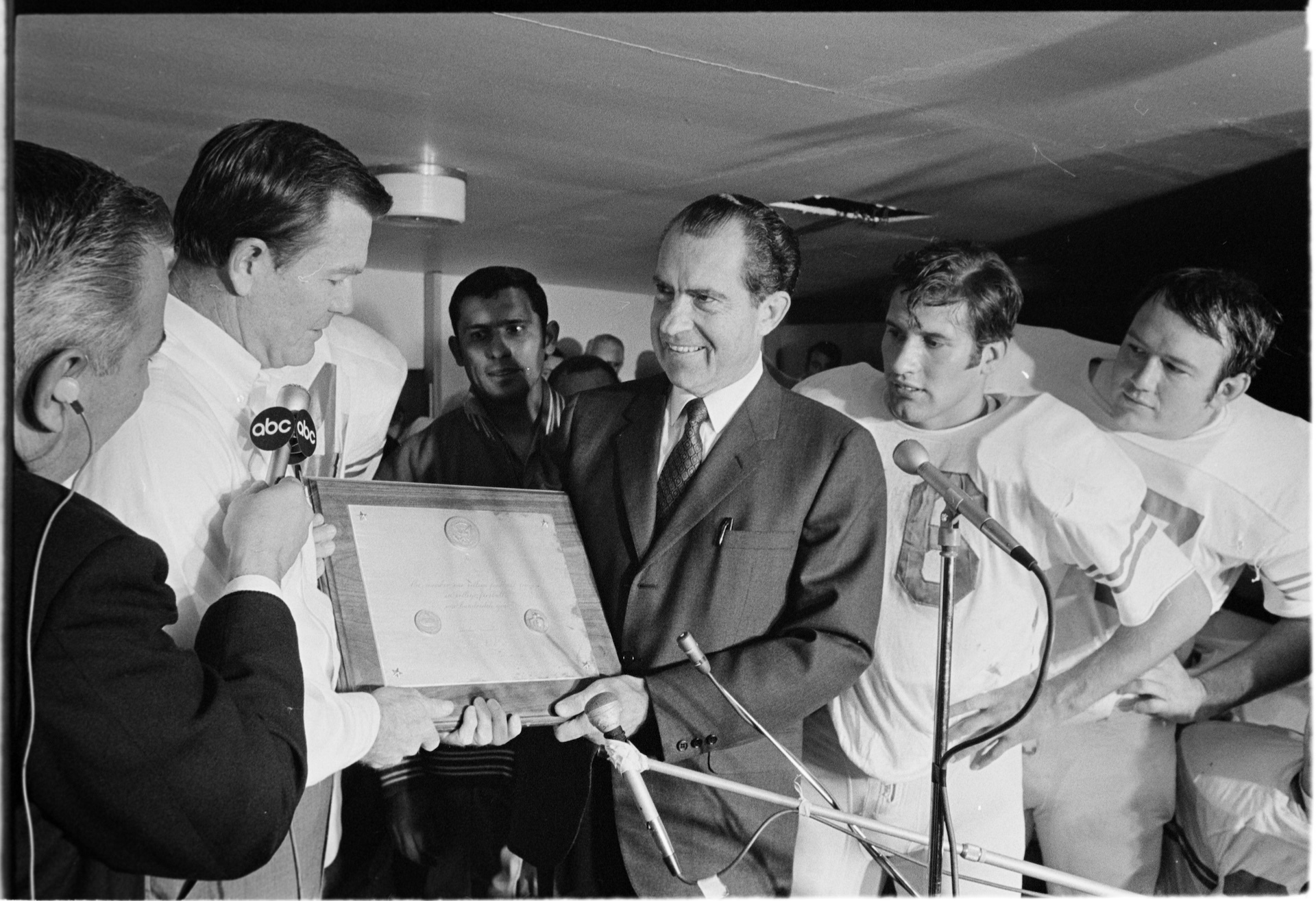

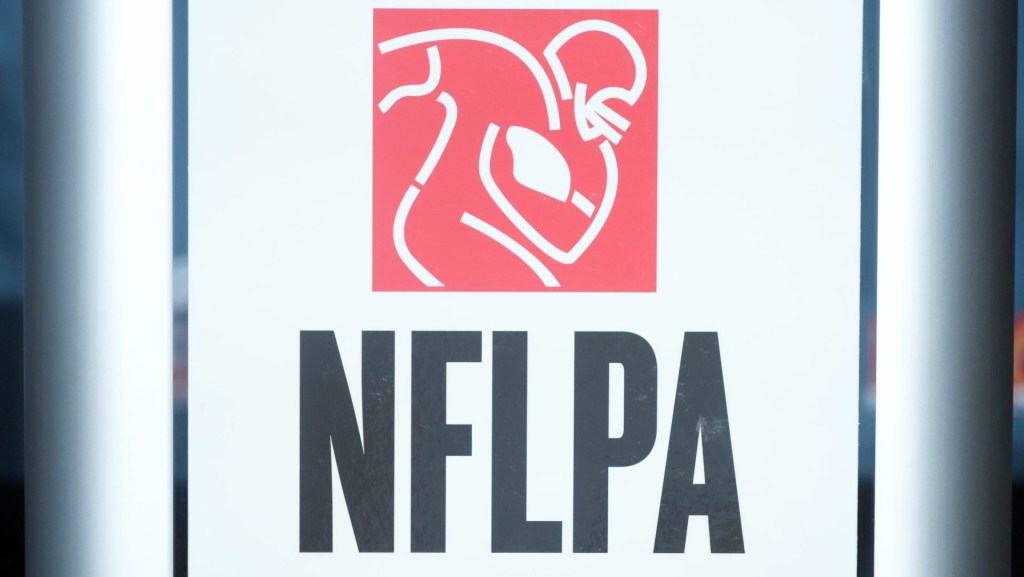

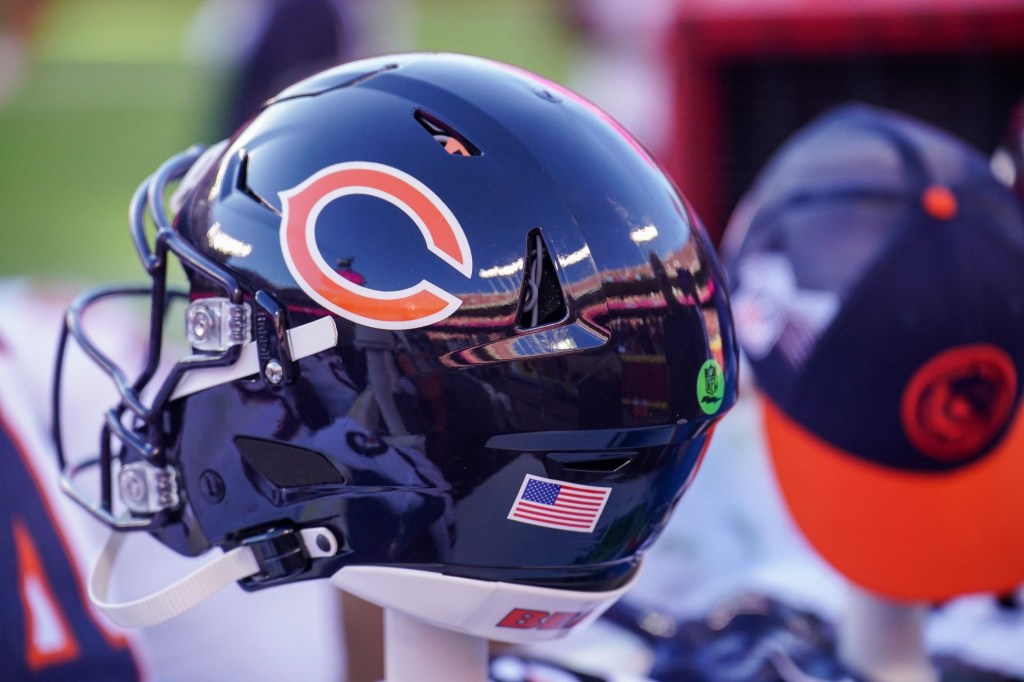

![[Subscription Customers Only] Jul 13, 2025; East Rutherford, New Jersey, USA; Chelsea FC midfielder Cole Palmer (10) celebrates winning the final of the 2025 FIFA Club World Cup at MetLife Stadium](https://frontofficesports.com/wp-content/uploads/2026/02/USATSI_26636703-scaled-e1770932227605.jpg?quality=100&w=1024)











